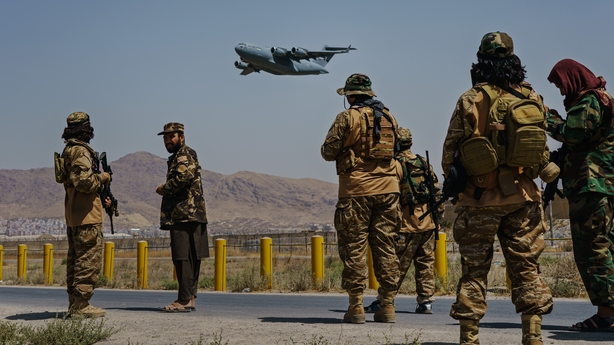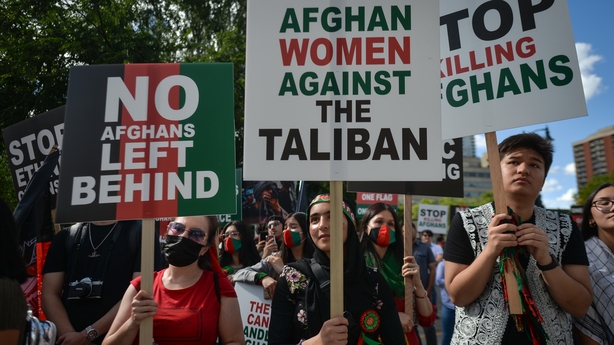More than 500 people are likely to be accepted under the Government's Afghan Admission Programme, established in response to the humanitarian crisis in Afghanistan after the Taliban returned to power there almost two years ago.
Originally places on the scheme were limited to 500, however a spokesperson for the Department of Justice has said that "the number of places to be provided under the programme is likely to exceed that number".
As of 27 July this year, 178 applications had been approved representing 479 beneficiaries.
This represents a third of all applications submitted.
In total 528 Afghan citizens living in Ireland applied on behalf of 1,492 potential beneficiaries by the scheme's closing date of 11 March 2022.
The department spokesperson said that "applicants who have met the criteria for the programme will continue to be assessed and have determinations issued on their application".
Under the terms of the scheme only specific categories of vulnerable people with relatives in Ireland would qualify, for example children, single adults, and the parents of applicants.
Applicants were also advised that they could apply for a maximum of up to four people, though at the time the Minister for Justice Helen McEntee said applications would be assessed on a case-by-case basis.
Applicants must also prove that they can house successful family members.
In addition to the 479 places now assigned under the Afghan Admission Programme, Ireland has offered 1,252 visas and permissions to Afghan nationals to reside in Ireland since the Taliban take over.

Of these, 508 were visa waiver letters issued under the Irish Refugee Protection Programme (IRPP) to Afghan judges, journalists, human rights activists, LGBTQ+ activists and others at risk of being targeted by the Taliban, as part of its initial response to the unfolding crisis in 2021.
Since 15 August 2021, 605 Afghans have also been granted Join Family Visas here.
These are discretionary visas that Afghan citizens living in Ireland can apply for in order to bring family members to join them here, and they are usually limited to spouses, children and elderly parents.
In the last two years, 139 Family Reunification Permissions have also been granted under the International Protection Act 2015.
People who have recently been given refugee status or subsidiary protection here can apply for these to be reunited with their spouse and/or children, or their parents and child siblings in the case of a child applicant.
Separately 1,481 Afghan citizens have sought international protection here since the Taliban returned to power.
Since the Taliban reclaimed control of the Capital Kabul on 15 August 2021, the UN has said that 20 years of progress for women and girls' rights has been erased.

In June UN Special Rapporteurs said that "women and girls in Afghanistan are experiencing severe discrimination that may amount to gender persecution - a crime against humanity", with girls and women denied education beyond primary level, banned from working outside the home in most sectors, prohibited from accessing public baths, parks, and gyms, and moving freely around the country.
Human Rights Watch has also warned that Afghanistan remains one of the world's worst humanitarian disasters, with two-thirds of the country’s population food insecure, including 875,000 children facing acute malnutrition.







